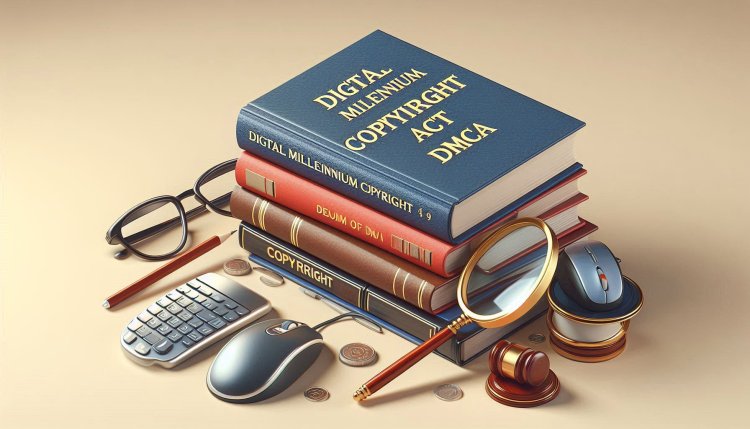Digital Millennium Copyright Act (DMCA)
Learn about the Digital Millennium Copyright Act (DMCA) and how it protects online content creators from copyright infringement.

Digital Millennium Copyright Act (DMCA)
The Digital Millennium Copyright Act (DMCA) is a United States copyright law that implements two 1996 treaties of the World Intellectual Property Organization (WIPO). It criminalizes production and dissemination of technology, devices, or services intended to circumvent measures that control access to copyrighted works (commonly known as digital rights management or DRM). It also criminalizes the act of circumventing an access control, whether or not there is actual infringement of copyright itself. In addition, the DMCA heightens the penalties for copyright infringement on the Internet.
One of the most controversial aspects of the DMCA is the safe harbor provision, which protects online service providers from liability for the copyright infringement of their users. This provision has been the subject of much debate and litigation, especially in the context of online platforms like YouTube, where users frequently upload copyrighted content without permission.
The DMCA also includes provisions for the takedown of infringing content, through the use of a notice-and-takedown system. This system allows copyright holders to notify online service providers of infringing content, and requires the service providers to remove the content expeditiously in order to avoid liability.
The DMCA has been criticized for its impact on free speech and innovation, as well as its potential for abuse by copyright holders. Critics argue that the law is overly broad and gives copyright holders too much power to control the dissemination of information online.
Despite its flaws, the DMCA has had a significant impact on the way copyright law is enforced in the digital age. It has helped to shape the development of online platforms and services, and has provided a legal framework for addressing copyright infringement on the Internet.
Key Provisions of the DMCA
1. Anti-Circumvention Provisions: The DMCA prohibits the circumvention of technological measures used to control access to copyrighted works, as well as the trafficking in circumvention tools. This provision is aimed at preventing piracy and unauthorized distribution of copyrighted content.
2. Safe Harbor Provision: The DMCA provides a safe harbor for online service providers who act as intermediaries in the transmission of copyrighted content. This provision shields service providers from liability for the infringing activities of their users, as long as they comply with certain requirements, such as implementing a notice-and-takedown system.
3. Notice-and-Takedown System: The DMCA requires online service providers to respond to notices of copyright infringement from copyright holders by removing or disabling access to the infringing content. This system is intended to provide a quick and efficient way for copyright holders to protect their rights online.
4. Online Copyright Infringement Liability Limitation Act (OCILLA): This part of the DMCA provides limitations on the liability of online service providers for copyright infringement that occurs on their platforms. It sets out the requirements that service providers must meet in order to qualify for the safe harbor protection.
Impact of the DMCA
The DMCA has had a significant impact on the development of the Internet and online services. It has helped to shape the legal landscape for copyright enforcement in the digital age, and has influenced the way that online platforms and services operate.
One of the key effects of the DMCA has been to encourage the development of digital rights management (DRM) technologies, which are used to protect copyrighted content from unauthorized copying and distribution. These technologies have become increasingly sophisticated over the years, and have played a key role in combating online piracy.
At the same time, the DMCA has been criticized for its impact on free speech and innovation. Some argue that the law stifles creativity and limits the ability of individuals to engage in activities such as reverse engineering and research. Others have raised concerns about the potential for abuse by copyright holders, who may use the DMCA to suppress legitimate uses of copyrighted content.
Overall, the DMCA has been a controversial and complex piece of legislation that continues to shape the way that copyright law is enforced in the digital age. It has had both positive and negative effects on the development of online services and the protection of intellectual property rights.
Conclusion
The Digital Millennium Copyright Act (DMCA) is a landmark piece of legislation that has had a significant impact on the development of copyright law in the digital age. It has helped to shape the legal framework for addressing copyright infringement on the Internet, and has influenced the way that online platforms.
What's Your Reaction?

















